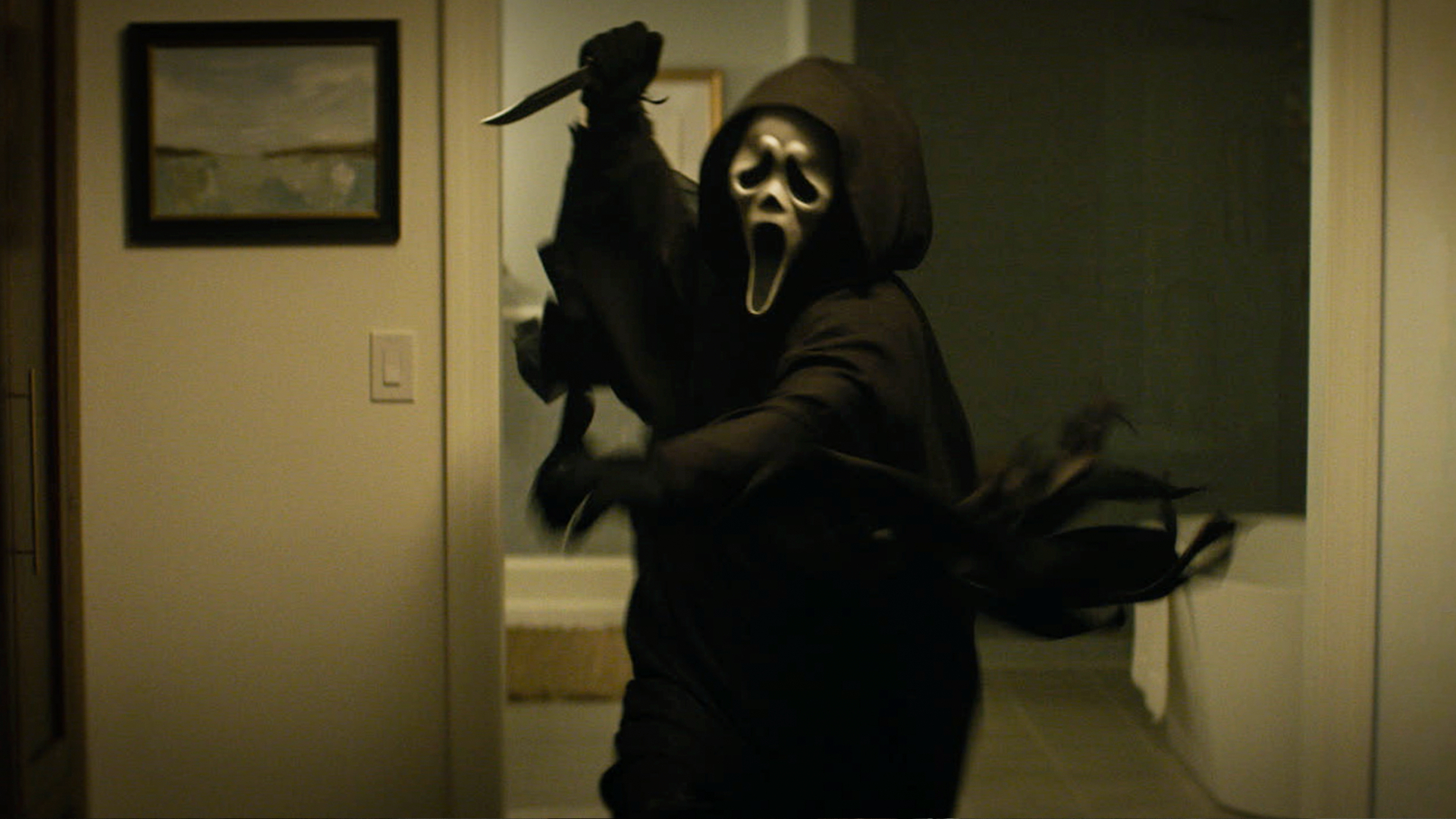The Making Of Django Unchained
Django's cast and crew talk Tarantino's western...
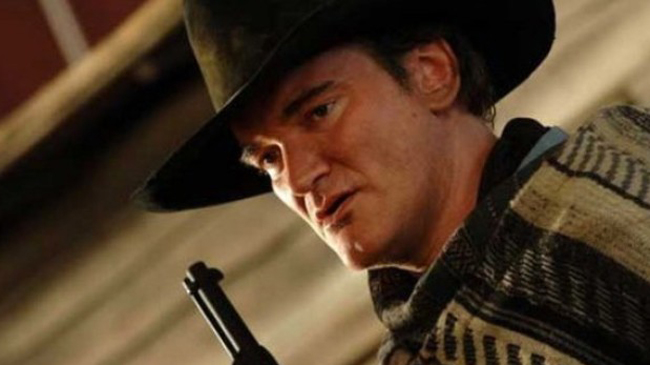
The idea
Quentin Tarantino: The initial germ of the whole idea was a slave who becomes a bounty hunter and then goes after overseers that are hiding out on plantations.
I just started writing, and Django presented himself to me.
At the beginning he just was who he was – the sixth slave from the seventh on a chain gang line.
But he just kept revealing himself to me more and more as I wrote.
I’ve always wanted to do a Western. I like all kinds of Westerns, but since Spaghetti Westerns have always been my favorite, I thought that the day I do one, it would be in that Sergio Corbucci universe.
Christoph Waltz: I read the script as it was in the making. It unfolded in front of me, more or less.
I went up to Quentin’s house and he sat me at his table and put the pages in front of me and then watched me read it.
It was a wonderful ritual.
I was very touched that he would actually let me participate not in the genesis of the script, but in his train of thought.
Pilar Savone (producer): As you hear Quentin typing in his house, you’re a couple months out, you start calling all the players.
You call [Stunt Coordinator] Jeff Dashnaw, and you call [Sound Mixer] Mark Ulano, and you call [Makeup Department Head] Heba Thorisdottir, You call everybody and you say he’s getting close.
You try and keep everybody available because we’re a family, we’ve all done so many movies together, and we love working together.
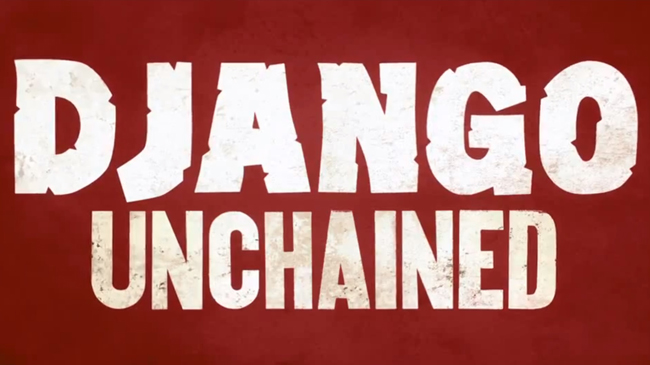
The title
Christoph Waltz: For us in Austria, ‘Django’ was a household name. Not necessarily Franco Nero, but ‘Django.’
Every Spaghetti Western that came out, even the obscurest ones, in the German version had ‘Django’ in their titles, even though there was no Django in the plot or in the story.
They just put ‘Django’ in because Django really was the distilled key word, so to say, to name the genre. If it had ‘Django’ in it, you knew it was a Spaghetti Western.
Quentin Tarantino: I like evoking the Django title for what it means to Spaghetti Westerns and that mythology.
At the same time, there’s a 40-film series of nonrelated Django rip-off sequels that are their own spot of Spaghetti Western history.
I’m proud to say that we are a new edition to the unrelated Django rip-off sequels.
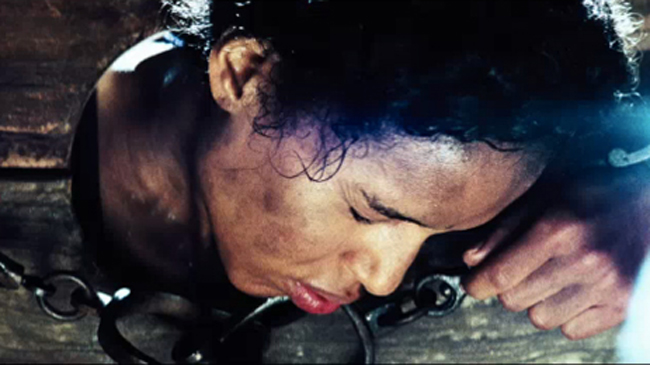
Real life vs fiction
Quentin Tarantino: It can’t be more nightmarish than it was in real life. It can’t be more surrealistic than it was in real life. It can’t be more outrageous than it was in real life.
It’s unimaginable to think of the pain and the suffering that went on in this country, making it perfect for a Spaghetti Western interpretation.
The reality fits into the biggest canvas that you could think of for this story.
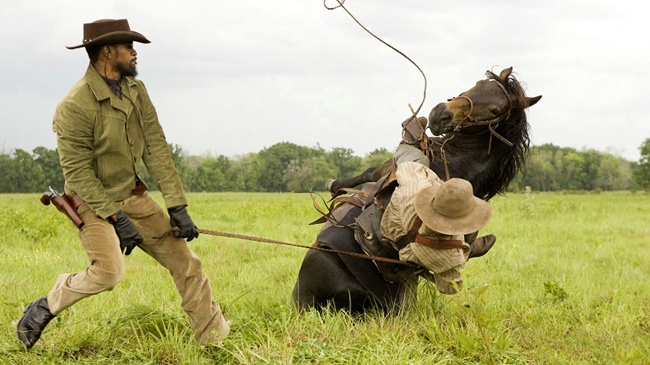
Casting Django
Quentin Tarantino: We got together and he [Jamie Foxx] was just terrific. He understood the story, the context of the story and the historical importance of the film. He got it 100%.
He’s a terrific actor and he looks perfect for the character, but there’s a cowboy quality to him.
When I met him, I was imagining that if they cast black guys in the 60s to be the stars of Western TV shows, I could imagine Jamie having his own TV show.
He looks good on a horse, and good in the outfit.
Jamie Foxx: It was the most incredible script I’ve read in all of my life. I thought, ‘Who has the guts, and the knowledge to tell it like it really is?’
I thought that the way he’s telling the story -- as true and as honest -- if it rips your flesh off, so be it. That’s what was exciting about the process.
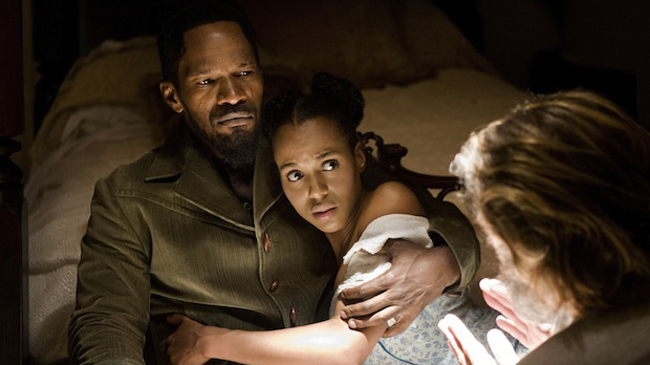
Django and Broomhilda
Jamie Foxx: Back at that time, to be married was taboo. You could be killed. They forced marriages back then – or they forced copulation – so the strongest buck would mate with the strongest black woman and they could get stronger slaves. They didn’t want black people to be married.
So Django being married was a big thing for me.
This is a love story. And that’s what fuels him.
He’s not trying to stop slavery. He’s not trying to do anything but find the love of his life – which is like trying to find a needle in a world of haystacks.
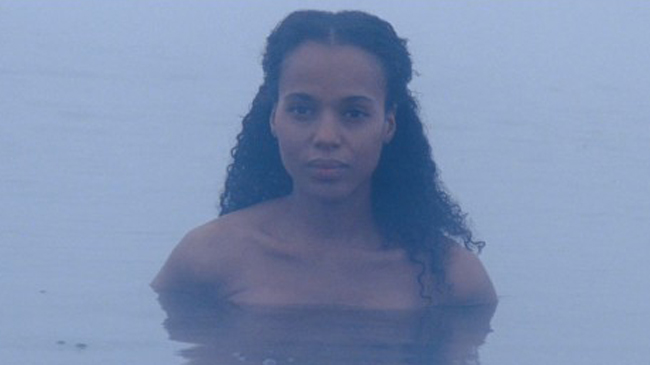
Casting Broomhilda
Kerry Washington: The thing that most drew me to the project was this idea that in a time when so much of the world was committed to the idea that people of African descent were not human, that you could have this love story take place between these two human beings who love each other so much at a time when they couldn’t legally be married on their own accord because they weren’t even their own people.
They were property. These two people find a way to be together because of the power of their love, and to honor their commitment of marriage to each other in this historical context. It’s just so powerful.
Samuel L Jackson: I’m always glad to be in a creative space with Kerry.
She has this very soft, and gentle, and beautiful nature that is filled with fragility that covers this strong thing that she has inside her. I just really like interacting with her. Every time we get together something special happens.
Jamie Foxx: She was the one who we all cared about the most.
If you talked to Quentin and Leo and everybody, we wanted to make sure she was good because she had to go through hell. And to watch her go through hell every day, it was tough.
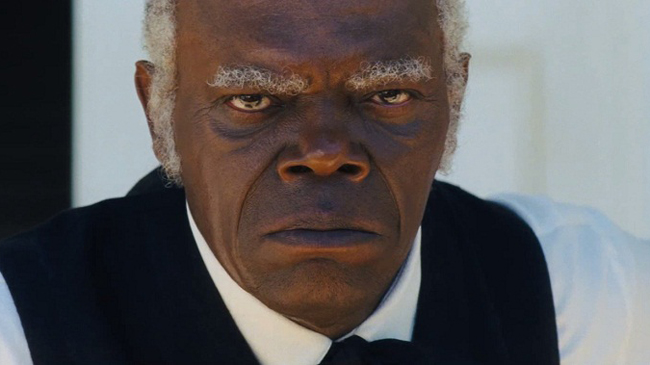
Casting Stephen
Samuel L Jackson: It’s a piece of our history that generally gets sort of whitewashed or perfumed in a way that this film just doesn’t do.
It’s always great to find a character on the inside of one of Quentin’s stories to wrap myself around.
Once we started doing table readings in Los Angeles I discovered where I wanted to go with Stephen, who he was, and what I wanted him to be.
It’s an interesting relationship between Leo and I that works out very well in terms of Django’s relationship to Dr. Schultz. Their relationship is almost shadowed by our relationship.
I was here since his father was here, and probably spent a lot of time with him as a child and kind of raised him.
I’m almost like the father that’s gone. We have another relationship in private than the one we have in public.
Leo’s characterisation is awesome, and when we’re alone he becomes the child that I used to take care of, and teach things, and talk to, and have a sterner relationship with in terms of making him get in line and understanding what’s going on.
Jamie Foxx: Quentin and Sam’s relationship makes you jealous, like, ‘Wow, man. Them dudes know each other.
And I look forward to having that type of relationship with Quentin here on out.
They know each other, they’ve got each other’s back, they figure things out. They came up with nifty stuff that I think that wasn’t even in the script, but that enhanced everything.
Samuel Jackson was a true juggernaut.
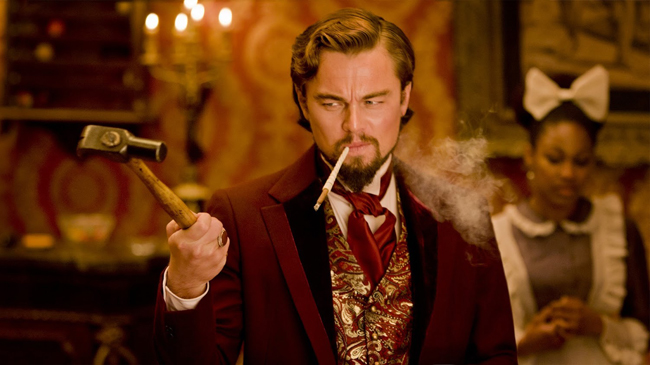
Casting Calvin Candie
Stacey Sher (producer): Leonardo has a level of commitment and seriousness about his work that I don’t think people recognize because he’s very quiet, and he’s very humble, and he keeps to himself. He is the person who learned as a young man from Robert De Niro in This Boy's Life .
He’s the person who cares about the filmmakers that he works with, and he brings his intelligence, and his commitment, and his desire to get you closer and closer to the truth.
Quentin Tarantino: He let me know he was interested in it. I tried not to be that specific with the character in the script, and I tried not to describe him too much, so it could be open for interpretation. But I was thinking, possibly, of an older actor. And then Leo read the script and liked it and we got together and started talking.
I just started imagining how much easier it would be to reconfigure the guy as a Caligula; a boy emperor. His daddy's daddy's daddy started a cotton business and his daddy's daddy continued it and made it profitable, and his daddy made it even more profitable.
Now, he’s the fourth Candie in line to take over the cotton business and he’s bored with it.
He doesn’t care about cotton: that’s why he’s into the Mandingo fighters. But he’s the petulant boy prince. He’s Louis XIV in Versailles. So I wanted to really play with that idea, of King Louis XIV, but in the South. Candyland is a completely enclosed community, about 65 miles long. That’s a fiefdom. He has the power of a king; he can execute people, or do whatever he wants.”
James Remar: One of the most vile aspects of his character is that he’s just got this charm, and yet he doesn’t really think he’s doing anything wrong.
He’s this guy that’s got too much money, too much power, too much time on his hands, and he can run people’s lives. He’s a Caligula. He’s quite mad, but he justifies all of it.
People aren’t gonna like him. But they’ll respect his work. I mean I’m watching it and I’m very drawn in. He is very precise. He pays a great deal of attention to detail.
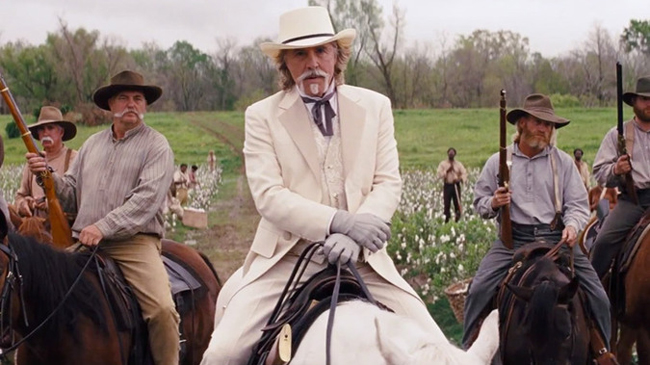
Casting Don Johnson
Jamie Foxx: It was like seeing something magical, like a unicorn. There’s Don Johnson. He was great choice. He absolutely killed it, and none of these characters are quite likable in certain aspects because they’re not supposed to be.
Stacey Sher: Don is Southern, and that was really important to Quentin.
They’ve known each other for years. It was great because the production had him for great big chunks. He left, he came back. We were just always so thrilled when he’d come back to us.
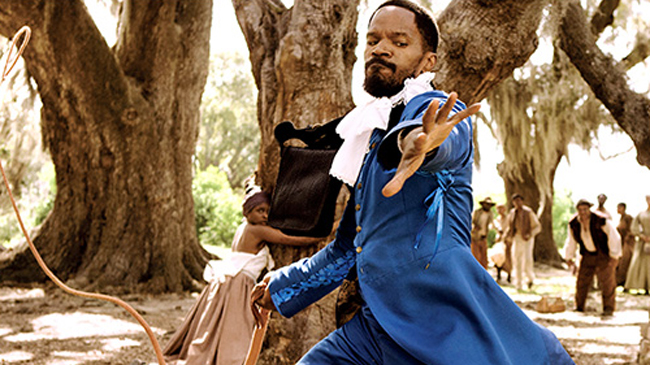
The costumes
Sharen Davis (costume designer): Jamie loved the Blue Boy outfit. At our first fitting, we were trying to work on his first change -- the hero costume, but he was so excited about blue boy.
He was in character. He was Django thinking, ‘Oh my gosh, I have new clothes for the first time in my life.’
Seriously, you could barely get him out of he outfit. He just loved it.
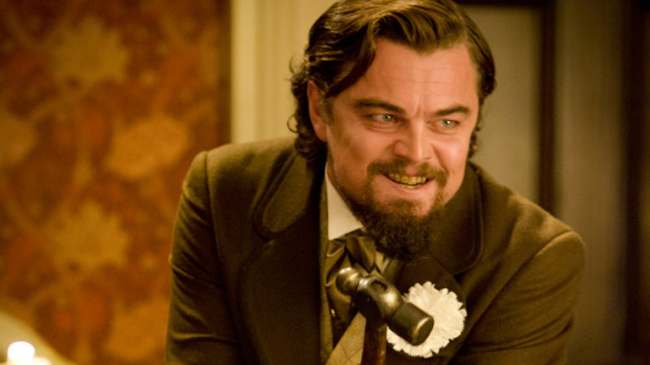
Production design
Michael Riva: I clearly saw Leo’s character as the devil, so I wanted to surround him with as much red as possible as I could.
For Django and, and Schultz, it seemed to me that they were Western heroes, they were the warm nicotines, and the ambers.
I tried to keep those colors in each set. At the end of the movie, things get darker, things get redder, things get more serious.
It’s not very complicated, but for me it helped to separate the two worlds that come clashing together.
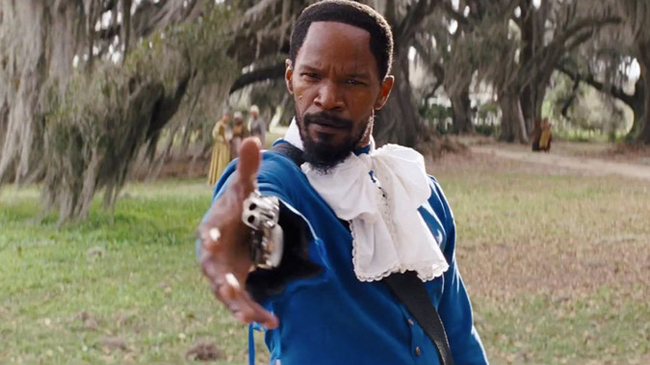
The shoot
Jamie Foxx: You can’t walk through those places [plantations] and not shed tears and feel something.
I took my three and a half and my eighteen year old children, and I let them walk through there. I said, ‘This is where you come from.’ That’s where we needed to be so we could really get down into the story.
Kerry Washington: It’s been such an adventure. We’re in Wyoming one week, and the next week we’re in Louisiana, and then we’re in Los Angeles. We’re all over the place in the same way that this character is trekking across the United States to find his wife. I think the adventure of making the film, and the adventure that Django goes on, are epic journeys in the name of love, which I think is pretty awesome.
Sam Ashurst is a London-based film maker, journalist, and podcast host. He's the director of Frankenstein's Creature, A Little More Flesh + A Little More Flesh 2, and co-hosts the Arrow Podcast. His words have appeared on HuffPost, MSN, The Independent, Yahoo, Cosmopolitan, and many more, as well as of course for us here at GamesRadar+.
Weekly digests, tales from the communities you love, and more
You are now subscribed
Your newsletter sign-up was successful
Want to add more newsletters?

